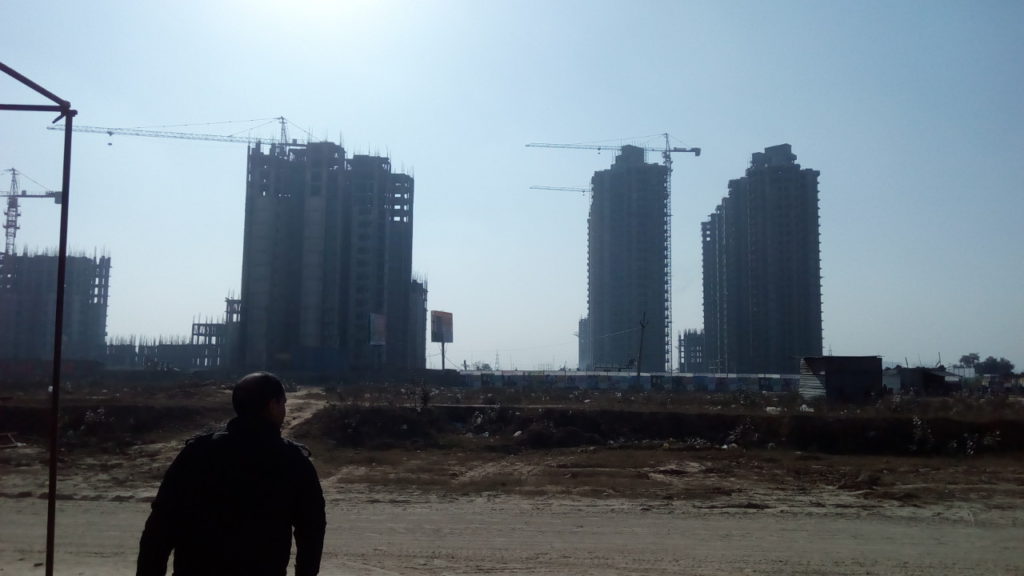On June 28, 2023, RK Arora, the Promoter-Director of Supertech Limited, a Noida-based (Delhi-NCR) real estate company, was arrested by the Enforcement Directorate (ED) on charges of money laundering. The investigation conducted by the ED has showed that Arora had taken hundreds of crores of rupees from homebuyers and investors but instead of using the funds to complete the promised projects, he redirected the money to other shell companies.
After being arrested, Arora was brought before a special court that operates under the Prevention of Money Laundering Act (PMLA). He was then remanded to ED custody until July 10.
The investigation by the ED was initiated after several complaints were filed by prospective homebuyers against Supertech Group. The investigation revealed that Supertech Group had misused a large amount of money, totaling hundreds of crores. The company failed to fulfill its promise of delivering flats to customers within the agreed timeframes.
According on the ED’s findings, Supertech Group diverted Rs 440 crore, received from homebuyers, to purchase land in Gurugram during 2013-14. However, the promised projects in Noida were not completed by that time. Subsequently, a new project was started on the acquired land, and more money was collected from numerous homebuyers. Loans were also taken from banks and non-banking financial companies (NBFCs), but these funds became non-performing assets (NPAs) and were declared fraudulent by the banks. Additionally, Supertech misused Rs 154 crore to acquire land through another shell company during the same period. Another Rs 40 crore was redirected to yet another company, which facilitated the purchase of land in Delhi. As a result, the diverted funds were used for purposes other than completing the projects, which still remain unfinished in 2023.
Arora, who held a key decision-making position within Supertech Group during this period, bears substantial responsibility for the misallocation of funds and the subsequent delays in project completion.
The arrest of Arora has caused a stir in the real estate industry, especially among homebuyers who had invested in Supertech projects. The prolonged delays and financial irregularities have left buyers unsure about the status of their properties and worried about the impact on project completion.
The ED’s investigation into Supertech Group’s activities has exposed mishandling of funds and raised concerns about the company’s commitment to its obligations. Homebuyers affected by the delays and alleged fund diversions are eagerly awaiting the investigation’s outcome, hoping for justice and a resolution to their longstanding concerns.
Supertech Insolvency Trouble
Real estate developer Supertech was declared bankrupt by the National Company Law Tribunal (NCLT) in March 2022. The NCLT had accepted Union Bank of India‘s insolvency petition against Supertech Limited, stating that the company had defaulted on dues of Rs 432 crore. However, the NCLAT, the appellate tribunal, restricted the insolvency proceedings to only the Ecovillage 2 project in Greater Noida (West). The resolution plan approved by the National Company Law Appellate Tribunal (NCLAT) entrusted the completion of other projects to the promoters of Supertech, under the supervision of a resolution professional appointed by the NCLT.
In May 2023, the Supreme Court upheld the NCLAT’s decision in the Supertech Limited insolvency case. The NCLAT had ordered a “project-wise resolution” process instead of a resolution for the entire company. The Supreme Court supported this approach to prevent complications for homebuyers. The case involved Union Bank of India and Indiabulls Asset Reconstruction Company Ltd., who were creditors of Supertech Limited. The company had taken loans for construction projects but failed to repay them, leading to insolvency proceedings. The NCLAT’s directions allowed certain projects to continue while focusing on resolving the Ecovillage 2 project. The Supreme Court chose not to intervene in these directions, except in cases where specific actions required court approval.
